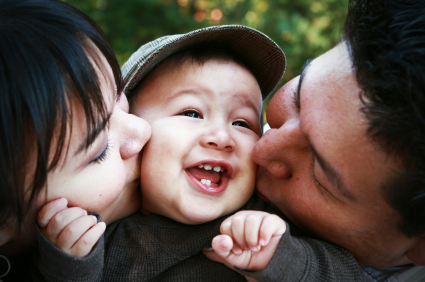Friendship is always a sweet responsibility, never an opportunity.” — Kahlil Gibran
 Become a fan of Raising Happiness on Facebook.
Become a fan of Raising Happiness on Facebook.
 Follow Christine Carter on Twitter.
Follow Christine Carter on Twitter.
Get our Happiness Tips email!
Friendship is always a sweet responsibility, never an opportunity.” — Kahlil Gibran
 Become a fan of Raising Happiness on Facebook.
Become a fan of Raising Happiness on Facebook.
 Follow Christine Carter on Twitter.
Follow Christine Carter on Twitter.
Get our Happiness Tips email!
This post from my Greater Good blog contains more of my dialogue with bestselling author Kelly Corrigan about how to praise kids.
This is part 1 in a series of four videos on this subject; Part 2 will be posted next week.
We’d love to know what you think of these videos, and what questions you have!
 Become a fan of Raising Happiness on Facebook.
Become a fan of Raising Happiness on Facebook.
 Follow Christine Carter on Twitter.
Follow Christine Carter on Twitter.
Get our Happiness Tips email.
“In 2008, Roger set out on a quest to lose weight, get healthy and eventually run in the Boston Marathon. But not just for himself, for his niece who was born with Cystic Fibrosis. His goal was to raise awareness for Cystic Fibrosis, along with raising money for research into the treatment and cure of this heartbreaking disease. This video highlights his incredible journey at age 47, from obesity to accomplished marathon runner. ” — Nuki (Roger’s friend)
 Become a fan of Raising Happiness on Facebook.
Become a fan of Raising Happiness on Facebook.
 Follow Christine Carter on Twitter.
Follow Christine Carter on Twitter.
Get our Happiness Tips email!
Yet, taught by time, my heart has learned to glow for other’s good, and melt at other’s woe.” –Homer
 Become a fan of Raising Happiness on Facebook.
Become a fan of Raising Happiness on Facebook.
 Follow Christine Carter on Twitter.
Follow Christine Carter on Twitter.
Get our Happiness Tips email!
Are parents happier than their childless peers?
For the last five years or so, I’ve answered that question with a resounding “no.” Statistics (not to mention anecdotal evidence) led me to believe that parents tend to be more stressed and less happy.
In some ways, this seems understandable, even obvious. Folks without kids can go to yoga or hang out with friends without having to find a babysitter (or negotiate with a spouse). Childless people don’t panic over stranding their kids at school when a meeting runs late, or lay awake at night worrying about how to keep the kids’ health insurance, or feel overwhelmed by mountains of laundry and plastic toys and permission slips.
But now three new studies throw a wrench in the previous research. The studies, to be published in the journal Psychological Science, find that parents report higher levels of happiness, positive emotion, and have more “thoughts about meaning in life.”

Some parents, that is.
Young parents and single parents don’t fare as well: Unmarried parents are unhappier than people without kids, as are parents under 26 years old. (Parents over age 63 don’t differ from their childless peers.)
Then there’s the gender gap. While it’s true that parents on average report greater happiness and satisfaction with their lives than their childless peers, this is actually because fathers are driving the averages up. Mothers don’t show a big uptick in happiness by having kids. It’s really the dads that are happier.
Parenthood, it turns out, is only associated with greater life satisfaction and happiness among fathers. Read this post from my Greater Good blog to find out how to get in on fathers’ fun.
 Become a fan of Raising Happiness on Facebook.
Become a fan of Raising Happiness on Facebook.
 Follow Christine Carter on Twitter.
Follow Christine Carter on Twitter.
Get our Happiness Tips email!
You might know that your TV needs to be grounded electrically to get a clear picture, but did you know that your body also needs to be grounded for optimal health? There is some amazing research that suggests that not having direct contact with the earth’s surface electrons–in other words, not being grounded electrically–is associated with nervous system imbalances, immune system issues, chronic pain, endocrine disorders, sleep problems, and much more.
A few studies show a fairly dramatic  improvement in health and pain levels–including things that profoundly affect our happiness, like the way our nervous system is activated and our stress hormone levels–just from sleeping on a grounded mat, or from standing barefoot on the earth. This review article in the Journal of Environmental and Public Health explains one such benefit:
improvement in health and pain levels–including things that profoundly affect our happiness, like the way our nervous system is activated and our stress hormone levels–just from sleeping on a grounded mat, or from standing barefoot on the earth. This review article in the Journal of Environmental and Public Health explains one such benefit:
Reduction in inflammation as a result of earthing [or grounding] has been documented with infrared medical imaging and with measurements of blood chemistry and white blood cell counts. The logical explanation for the anti-inflammatory effects is that grounding the body allows negatively charged antioxidant electrons from the Earth to enter the body and neutralize positively charged free radicals at sites of inflammation. Flow of electrons from the Earth to the body has been documented.
Humans used to walk barefoot in their homes’ dirt floors and sleep on the ground. Needless to say, we no longer live in a “grounded” environment: we wear rubber shoes, and often live several stories above ground.
I love free medicine, and that is what this is. Although we can purchase grounding mats for use indoors, we can also just get outside this summer: research shows that walking barefoot for 30-40 minutes works well.
Take action: Ground yourself this week by working in the garden, walking barefoot, or sleeping on an “earthing” bed sheet (or on the ground!). Report back: does this technique work for you? Do you feel happier and healthier after you’ve been walking around barefoot on the earth? Leave your comment below.
 Become a fan of Raising Happiness on Facebook.
Become a fan of Raising Happiness on Facebook.
 Follow Christine Carter on Twitter.
Follow Christine Carter on Twitter.
Get our Happiness Tips email!
The person who says it cannot be done should not interrupt the person who is doing it.” — Chinese proverb
Researchers believe that the brains in both humans and animals evolved to feel calmed by repetitive behavior, and that our daily rituals and habits are a primary way to manage stress. Ever notice that you always drive to work the same way, even though there are dozens of other routes? Or that you always put deodorant on right after you brush your hair? Each of us has hundreds of little habits that carry us through the day. The fast-paced world we live in can feel quite unpredictable, but our daily rituals can help us feel more in control, often without us ever realizing it.
But then here we are…in the middle of the summer. I don’t know about you, but my routines are falling apart. I found this old conversation between me and my daughter from the archives:
Me: Uh, let’s see. This week is Girl Scout Camp. So you need to pack a lunch. And a swim suit. And a towel. Oh wait, you have a BBQ today, so no lunch but you do need to bring—oh, darn. We’re supposed to bring dessert. How fast can we make Rice Krispie treats?
Fiona: Can’t we just buy something on the way? What time does camp start?
Me: I think 9:30. But I have a meeting at 9:00. I might drop you off early.
Fiona:I think that’s against the rules. They gave us a big rule book, you know. Who’s driving me home?
Me: Uh. Hmmm. I’ll check the schedule and call Debbie so she can text her daughter, who’ll tell you.
Fiona: Cell phones aren’t allowed at Girl Scout Camp.
Me: Oh yeah. That’s why we love it.
There is so much to love about summer, but let’s be real: The lack of routine can be a little hellish. Which makes the importance of habit for keeping us sane even more salient over the summer.
Over the years, as I’ve sought to make my summers less chaotic and more productive, I’ve learned that summer is the perfect time to practice getting into good habits and routines. Creating habits is a skill, just like learning a new sport, and when we practice, we get better. [End email with this sentence: Read this post for eight research-based steps for creating new routines this summer.]
Here are eight research-based steps for creating new routines this summer:
1. Contemplate a change you’d like to make in your life. What do you need to be healthier and happier? For example, one of my clients wants more energy to accomplish her goals; to feel better she’ll need to get more sleep, which affects our intellectual ability, our physical health, and our emotions. Habits like sleep, exercise, or meditation—anything that creates a platform for more good habits—are what Charles Duhigg, author of The Power of Habit, calls a “keystone habit.” Which of your routines has the power to change your mood or outlook on life?
2. Do your homework. We know that people go through stages when they are making changes, and before we spring into action, we need to prepare. So if more sleep is your goal, maybe you need to read up on what it takes to get a better night’s rest or buy a new pillow.
Caution: Research shows that you will probably feel tempted to stop here, after you’ve bought the book and the pillow. Feel good about getting started, but please don’t stop before you’ve actually begun.
3. Make your goal public or find a friend to hold you accountable. This is where that post-Memorial Day FAQ (“What are you doing this summer?”) comes in handy. Telling lots of folks what we are shooting for can dramatically increase the odds we’ll actually do it. For starters, commenthere to let us know what habit you’d like to get in this summer.
4. Make a list. Write down all of the small changes you’ll need to make in order to reach your goal. For example, if you are trying to get more sleep, you might want to stop drinking coffee after 11:00 am, turn off the computer at 9:00 pm, get the kids to do their own laundry so you don’t have to do it after-hours, get in bed by 10:00 pm, read a book instead of watching TV in bed, etc.
5. Pick a super-easy first step. Look at your list: What is the easiest thing on it? Now, what one tiny step can you take toward that already-small thing? Maybe it would be easy for you to go to bed 10 minutes early tonight, or to replace your afternoon coffee with decaf. Do the thing that is easiest and most appealing to you.
6. Anchor that first step within an existing routine. In other words, add it to something you already do habitually. The trick is to work with the same cue that triggers the existing habit. You already are in the habit of putting toothpaste on your toothbrush at night; if you want to start flossing, your super-easy-first-step could be to get the floss out with your toothpaste.
7. Visualize success. Spend a few minutes every morning thinking about your goal. What will prevent you from succeeding? What exactly will you do when you face the obstacle you imagine? Now, revel in how you will feel when you do succeed. Soak up those warm feelings.
8. Celebrate each time you do this ridiculously easy thing every day for a week. Got into bed 10 minutes early tonight? WHOO-HOO! Have a little party in your mind. (I learned this, and a lot more, from Stanford’s BJ Fogg. I cannot recommend his free 3 Tiny Habits program highly enough.)
When you’ve accomplished one small thing, choose an equally-unambitious next step. You are more likely reach your goal by taking a series of teensy steps than if you try to do it all at once.
The key to successfully changing your life in a summer? Practice. Practice creating new habits by mastering one ridiculously easy behavior at a time, slowly making them automatic.
Here is the really good news: Your good habits are contagious, highly likely to spread to your friends, your family, and especially your children. So consider that good night’s sleep a contribution to the greater good.
Like this content? Get tips for greater happiness and productivity in your email.
 Become a fan on Facebook.
Become a fan on Facebook.
 Follow Christine Carter on Twitter.
Follow Christine Carter on Twitter.

“Music gives a soul to the universe, wings to the mind, flight to the imagination and life to everything.” — Plato
Loads of research shows that music can uplift and restore the spirit — so much so, in fact, that I have a “go-to” playlist of music that makes me feel happy. At the top of my list? Ray Charles’s “I Can See Clearly Now”; Luce’s “Good Day,” Martin Sexton’s “Happy,” Paul McCartney’s “Maybe I’m Amazed,” and Van Morrison’s “Full Force Gale.”
Take Action: With so many online services offering free music (I like Pandora and Spotify) it is easy to make a go-to happiness playlist. Make yours today. What’s on it? Music preference is highly individual, but knowing what’s on other people’s lists can help us get started. If you need a big of help with this part, we created a Spotify Playlist for you to listen to with some of the suggestions from your comments below.
Join the Discussion: Help others by listing the songs that uplift your spirit and bring you joy in the comment box below.
A film by Random Acts of Kindness Foundation.
Another Kleenex-worthy video. If you are tempted to think that our children are too young to make a difference, this will inspire you to reconsider.
I found this video on KarmaTube — it is a great source for inspiration!